Earning Rs 8 Crore, Manipur Man’s Unique Tea Frees Farmers From Drugs, Uplifts 2000
Manipuri company makes superior herbal tea by employing 2000 underprivileged persons for the growing, packaging and selling process.
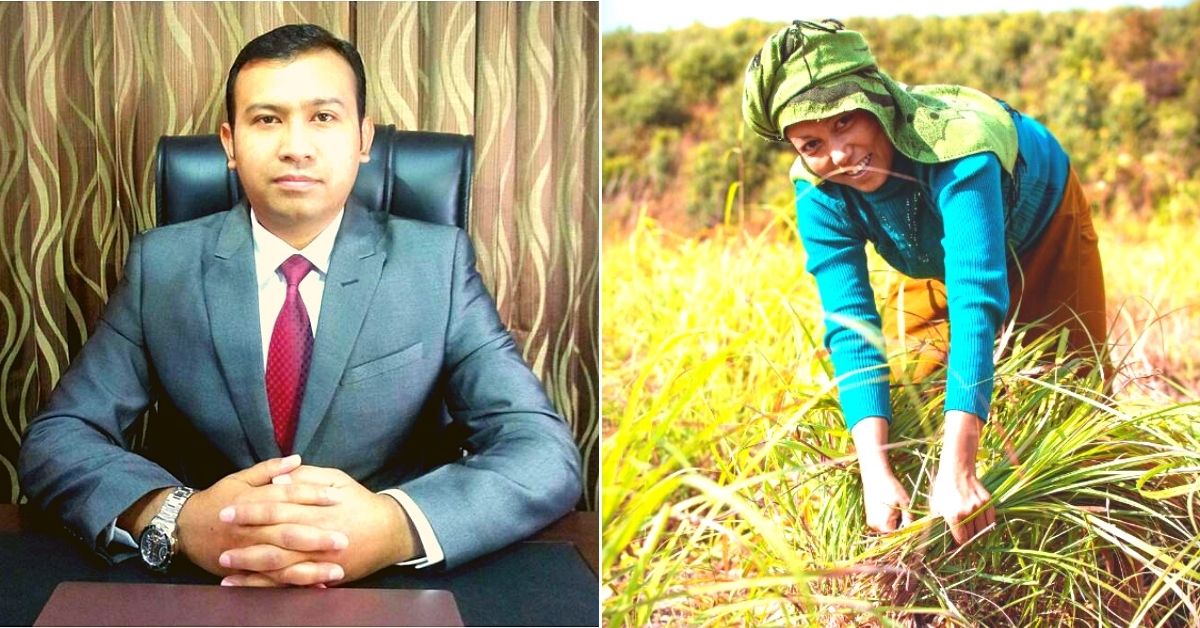
Ragesh Keisham, a 44-year-old Imphal-based entrepreneur, sells a unique product – that converts illegal drug fields into delicious and nutritious lemongrass tea! Alright, it is a more complicated process than that. Still, here you have an entrepreneur, who has not only expanded from 1 acre to 350 acres and runs a business whose annual revenues touch Rs 8 Crore but also positively impacts the lives of more than 2,000.
(Photo above: Left – Ragesh Keisham, Right – Local woman working on a CC Tea farm.)
For the past nine years, his company, SuiGeneris Agronomy Pvt Ltd, has been manufacturing CC (Cymbopogon Citratus, also known as lemongrass) Tea, which is a 100 per cent natural caffeine-free herbal tisane loaded with scientifically proven health benefits.
In manufacturing this tea, his company does not use Camellia Sinensis, a species of evergreen shrubs or small trees whose leaves and leaf buds are used to produce conventional tea.
Ragesh has also empowered the lives of more than 2,000 underprivileged residents of Manipur. His company takes farms on lease from marginal farmers, who were once illegal growers of poppy and cannabis. Thus far, the company has taken approximately 350 acres of land on lease across four districts—Senapati, Ukhrul, Kangpokpi and Thoubal. The sowing and harvesting process is organised by the company using labour from rural communities surrounding the farm, while the landowner oversees it.
Some landowners are also trained and employed as technicians in the company factory as well for a monthly salary. Labour for de-weeding and transplanting are obtained from surrounding rural communities, whose costs are taken care of by the company.
Before CC Tea’s intervention, these farmers were constantly harassed by traders and drug enforcement officers. Instead of working on an illegal crop, they are now earning a daily or monthly wage.
“These marginal farmers would fall in this trap of growing poppy because traders would give them an advance on the pretext of buying the subsequent harvest. In selling their harvest, these farmers made some good money, but most of the time, the government would send narcotics department officials to burn down these plantations. Ultimately, these farmers who have taken advances from traders have nowhere else to go. With no crop to harvest and traders seeking their advance money, where do they go? This is a vicious cycle, and most of them end up becoming alcoholics, dead or running away from home,” says Ragesh Keisham, the founder of SuiGeneris Agronomy, speaking exclusively to The Better India.

Listen to Resangmi Hungyo, a farmer from Muirei village in Senapati District.
“In the past, I grew whatever I could find. But ever since I was introduced to the CC Tea project, they paid me for leasing my land and gave employment at the factory also. Besides working in the factory, I am also working as a caretaker in the field. My previous life was so different, but now I can maintain all the needs of my family,” he says.
Once matured, post-harvest, the leaves are then processed in their factory in Ngarumphung village, Kangpokpi District, by many underprivileged women under the guidance of skilled and experienced technicians. Besides the conventional distribution channel, CC Tea also enters the market through loyal consumers and members of underprivileged rural communities under their referral programme where they receive a commission.
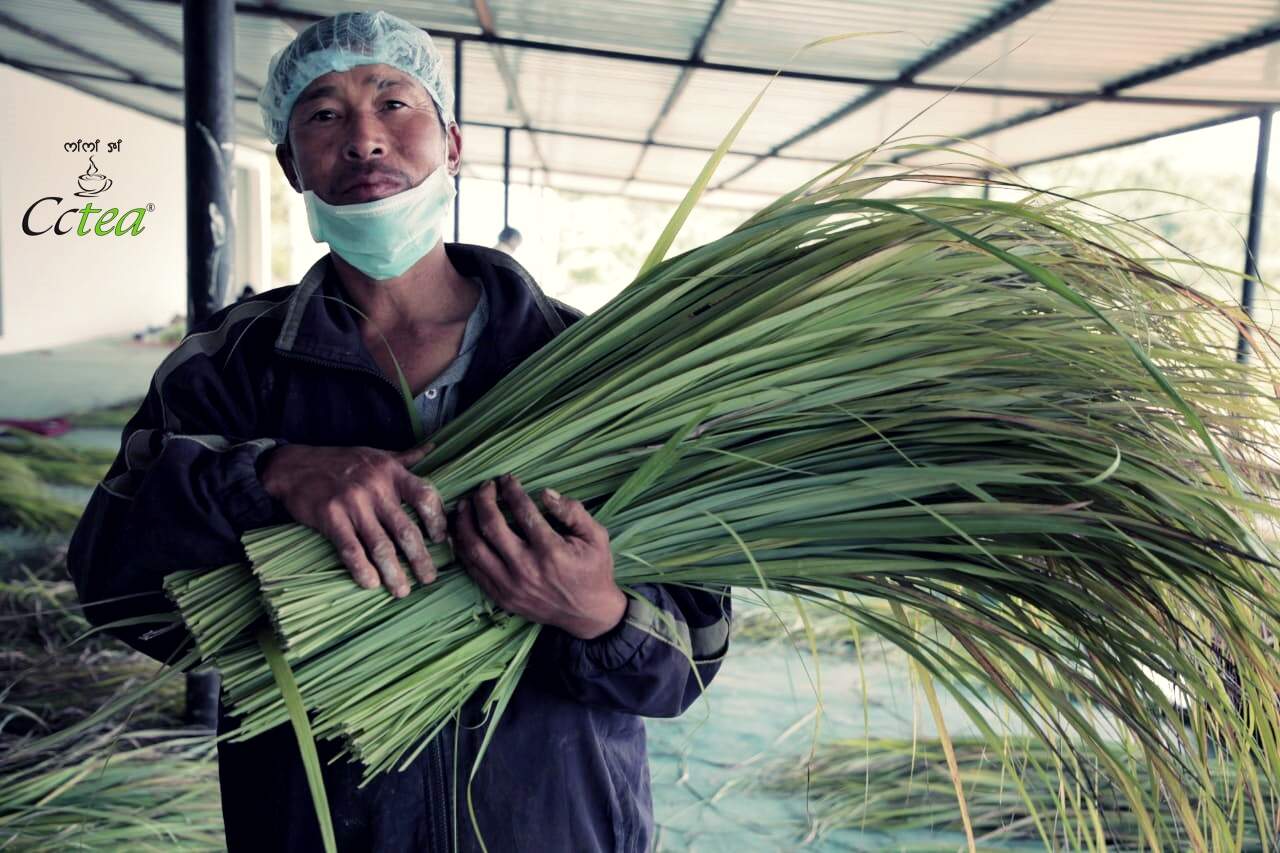
Finding CC Tea
“Back in 2008, my family was crushed under a mountain of debt. My parents, who were government employees, had sold off nearly everything to treat my elder adopted sister, who eventually died of Leukemia. We were living hand-to-mouth, and I needed to find a way out of this quagmire. Earlier, I had dabbled in some freelance consulting work, but by now I needed to make some real money,” says Ragesh.
He tried his hands at various businesses, including data digitization and supplying bamboo saplings to Uttarakhand, but with little avail. With his family struggling every day, he needed a venture that would generate a significant income. But any venture that required electricity was out of the question since it was available for three to four hours a day. The only possible outlet Ragesh saw was agriculture. But what would he grow?
For answers, he contacted Dr M Ahmed, an aromatic scientist, who suggested growing lemongrass because of a thriving market for the oil extracted from it. He soon got in touch with a friend residing in Indonesia, who sent him 10,000 slips of CC, and began experimenting with it on his one-acre plot of land in Leimakhong – barely 20 km from Imphal.
The next year and a half were spent in research, trial and error and awaiting clearances on loan applications he made to buy equipment that would cut the grass and irrigate the land.
This was a period filled with anxiety with mounting concerns over household expenses. However, it was during his intense research on lemongrass at the State library in Imphal, which inspired his idea for CC Tea.
“I had read about how CC was called Fever Grass in Brazil because of a boiled concoction people there made to cure fever. It planted the idea that I could make a beverage out of it with real health benefits. To test my inspired idea, I took some fresh leaves, crushed it and made the tea myself. Although it was a beautiful shade of green, the tea tasted horrible. But I found out that the bad taste and aroma was a result of not following the right drying protocol,” recalls Ragesh.
After fixing this problem by the end of 2009, he prepared CC Tea once again, and this time gave it to his parents who drank 10 to 15 cups of conventional tea every day.
“As tea addicts, they were perfect test cases. While my mother took an immediate liking to it, my father took his time, but after about 10 days or so acquired a real taste for it. Moreover, drinking CC Tea eased his constipation problems. I had hit the jackpot,” he adds.
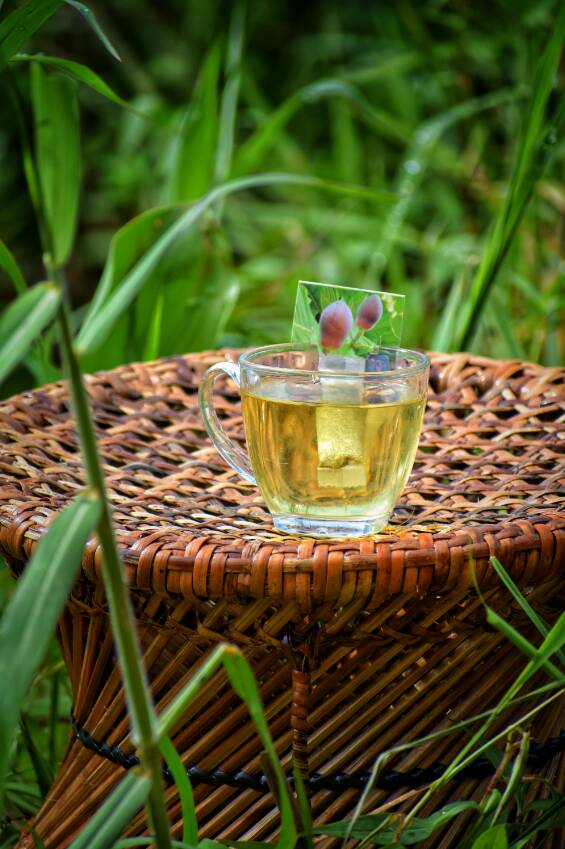
To test his product for toxicity levels and nutritional value, Ragesh’s mother took another bank loan so that he could visit the FICCI Research and Analysis Center in New Delhi. After passing various tests with flying colours, he was joined by his family members and volunteers to market the living daylights out of the product in schools, colleges, churches and clubs all across Imphal with a special emphasis on potential health benefits.
Meanwhile, his wife sold all her jewellery to help him buy packaging material. After making 200 packets of this tea himself, he launched CC Tea in Imphal on 21 August 2011.
Within five minutes, all 200 packets were sold, and the rest, as they say, is history.
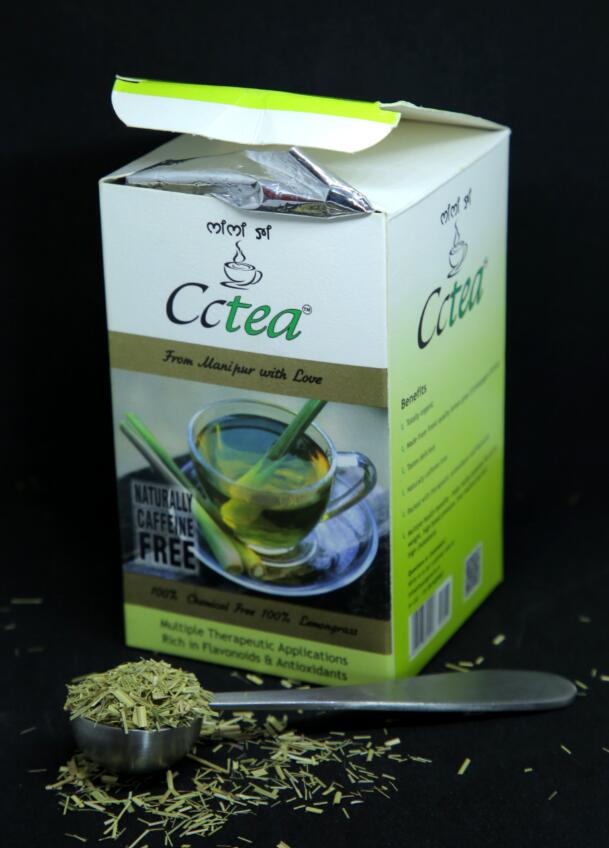
CC Tea and its health benefits
One packet containing 100 tea bags costs Rs 399, while the one with 40 costs Rs 200. Their 100 gm packet of CC Tea granules costs Rs 200, while it’s Rs 240 for 150 gm.
“CC Tea cannot be compared with conventional tea or any other green tea available in India because ours is a superior product. The same quality of herbal tea from China, for example, would cost Rs 1,500 per 100 gms. More importantly, our product has verifiable health benefits. We are collaborating with Dr Sachin Kumar, Associate Professor at the Department of Biosciences and Bioengineering, IIT-Guwahati, who is leading the research on the health benefits of CC Tea. We found that on six human cell lines, CC Tea has innate immune-boosting potential and other anti-viral properties,” says Ragesh.
“Results so far reveal that CC Tea has potent antiviral compounds to the NDV (Newcastle Disease), and JEV (Japanese Encephalitis Virus) besides boosting innate immunity to prevent the spread of foreign pathogens. The tea is also non-toxic at a reasonably high concentration. Further tests are being undertaken,” says Dr Sachin Kumar.
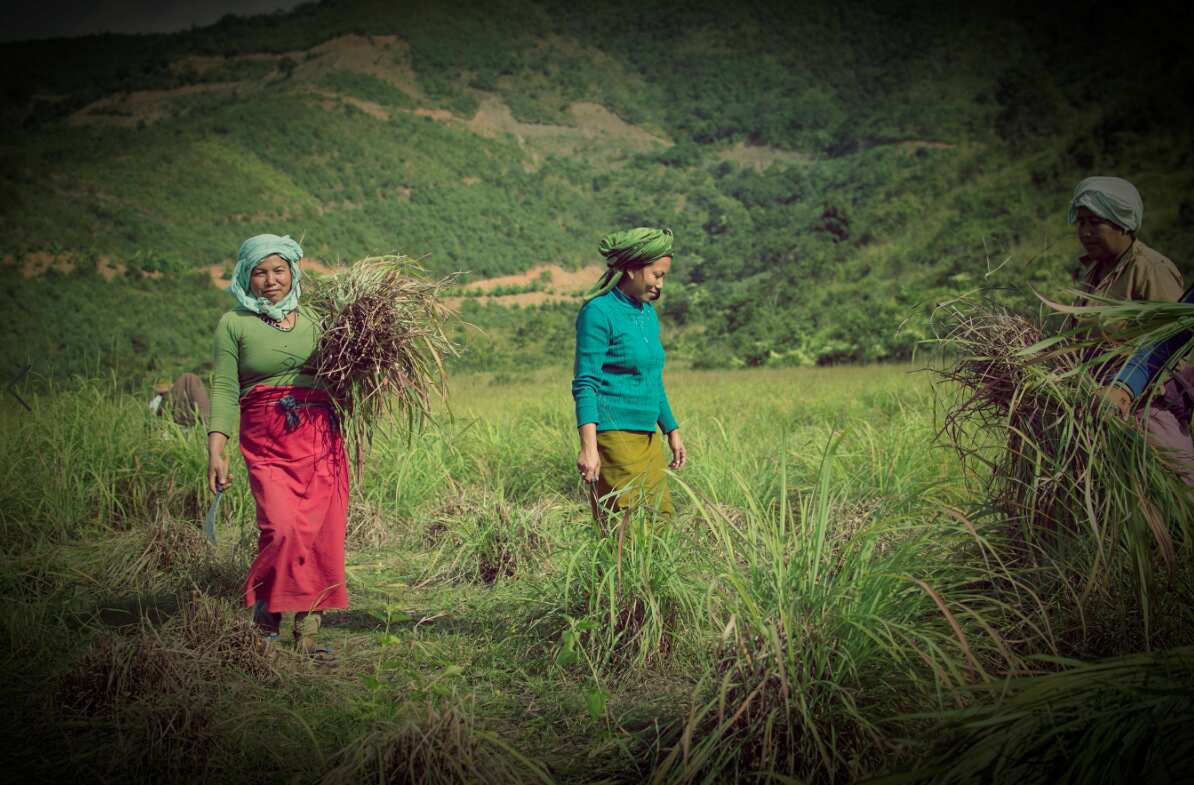
These studies commenced during the lockdown. With the company forced to shut down their factory from 6th March to 30th August, Ragesh’s team decided that it was a good time to scientifically verify claims from consumers of how CC Tea helped them sleep better, control their blood sugar levels and ease constipation troubles.
The business did take a massive hit during the pandemic. But without the pandemic, Ragesh claims that they wouldn’t have thought about this collaboration with IIT-Guwahati.
“Post 30 August, we have been able to access new markets thanks to the research’s findings. We should pick up the business we lost in the past six months in the next four. My employees, who understood the gravity of this pandemic, sacrificed half their salary while I did the same with my earnings. Thankfully, we didn’t have to lay anybody off,” he says.
At present, their market is concentrated in Northeast India, particularly Manipur. For the rest of India, they are available online at www.cctea.in and serviceable to more than 25,000 pin codes. They even export their product to Europe through a Slovenian partner, Rozle Tea, although small quantities are also exported to Japan, United States and the Middle East.
“Pre-COVID, our annual revenue was about Rs 8 crore. It’s a small business, but we were on course for a jump to Rs 12 crore until the pandemic hit the brakes on our progress. This year we should be able to hit last year’s mark,” he adds.
Farm to Tea Table
CC Tea is the quintessential farm to table story. Once the plantation is done, it takes about six months to harvest. The harvested leaves are brought back to their 45,000 sq ft factory. Once it reaches the factory, about 200 womenfolk are waiting to separate the finest leaves. Stalks and tips are cut out, and the remaining portion is washed properly.
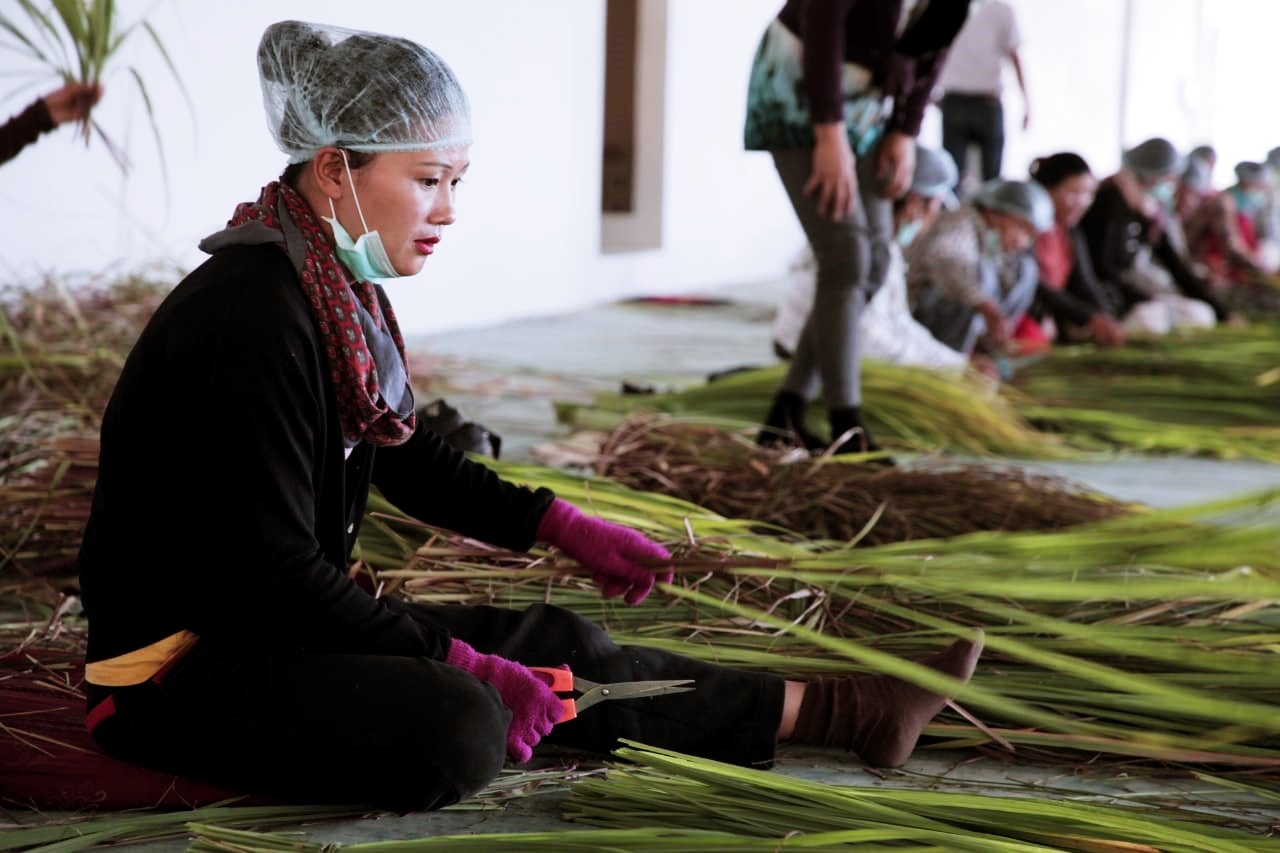
This is a three-way washing process, following which the leaves are sent to their diffused drying shed. These leaves are left there for 24 to 48 hours, depending on the weather. During this process, the moisture level settles at 40 per cent. Then the leaves are sent to their hot air blower, where they are dried at a particular temperature that doesn’t kill the nutritional value.
“We dry it at a lower temperature. Although the process takes a little longer, the nutritional value remains intact. In most tea products, all the nutritional value is burned out. Once the leaves are dried properly, they are sent to our cutting department. The final cuts measuring 1-2 mm are sent to our 100 gms and 150 gms granules packaging team, while the powder is sent to our tea bag machine where pouches are made by hand. We have very little automation in our factory because we want to preserve greater employment. These pouches measure four inches long. Behind each pouch, a small sticker is pasted telling customers some unique fact about Manipur. Once sealed, these tea bags are ready for the market,” he says.
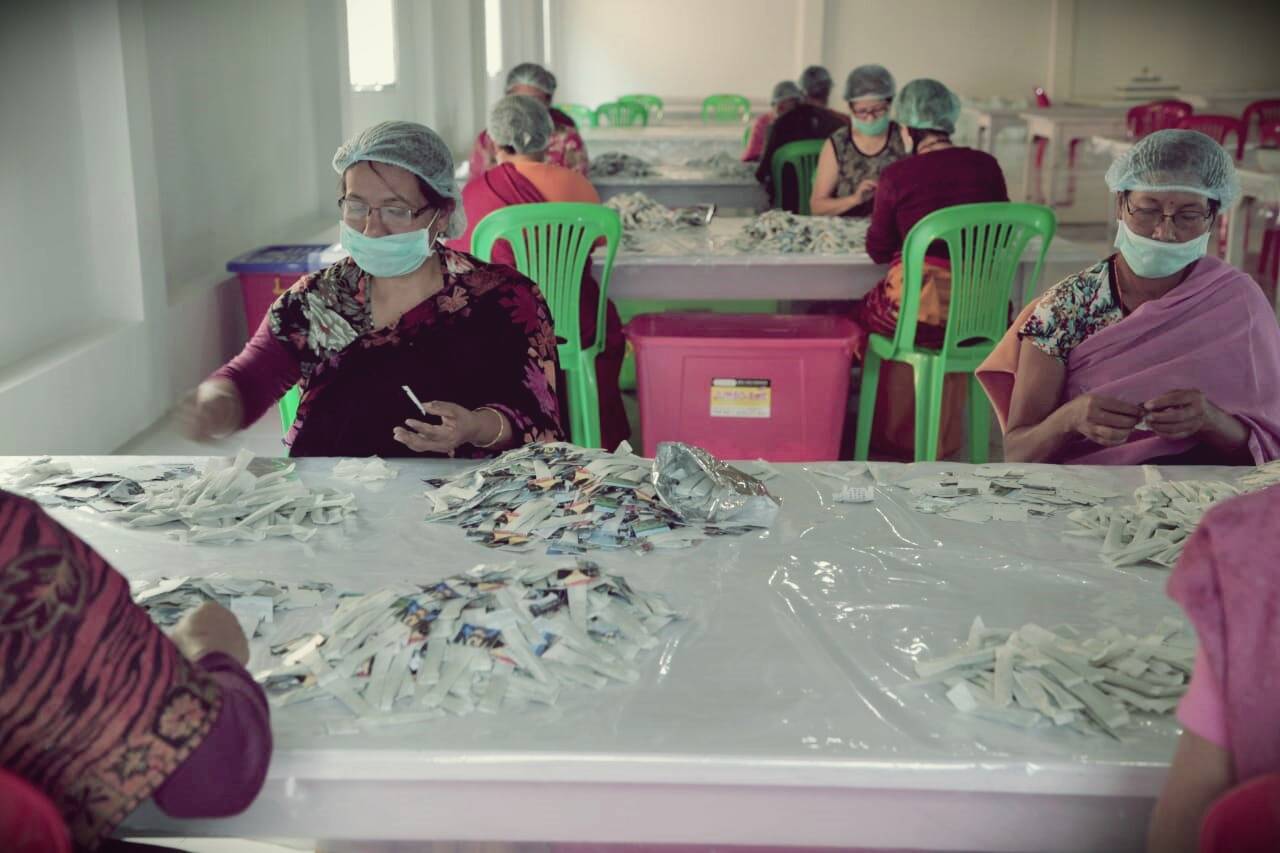
Social Impact
Aside from loyal customers, the company indirectly employs people from these rural communities to sell their product. Based on a certain level of trust, they are given packets of tea bags and granules on credit.
“If they sell 1,000 packets their commission is 20 per cent, which amounts to approximately Rs 40,000 at MRP. Besides a commission, we also pay them a salary of Rs 25,000 for selling these 1,000 packets. For 500 packets, we pay them a salary of 10,000, while the commission percentage remains the same,” he says.
Ningthoujam Romibala, a single mother from Khurai Lamlong Bazaar, Imphal, speaks of her joy at joining the SuiGeneris Referral Program (SRP).
“Despite being the only earner in the family, I never compromised when it came to raising my three sons. But with no fixed salary, some insecurities led to many sleepless nights. After joining the SRP, however, I can send Rs 30,000 per month to my three sons who are studying medicine and nursing. After I became an active brand promoter, my monthly earnings never fell below Rs 40,000 per month,” she says.
Meanwhile, during the peak monsoon season, the company employs about 1,500 people, mostly women. This drops to about 300 in the offseason. Most of 1500 in the peak season (monsoon) are employed in the farms for de-weeding and transplanting. The company employs them for two to three days in a week and pays them wages accordingly. In a year, they get about 100 days of guaranteed employment akin to MGNREGA.
“The village where we set up the factory once saw residents struggling to eat one square meal a day. Now, they have started sending their children to school,” says Ragesh.
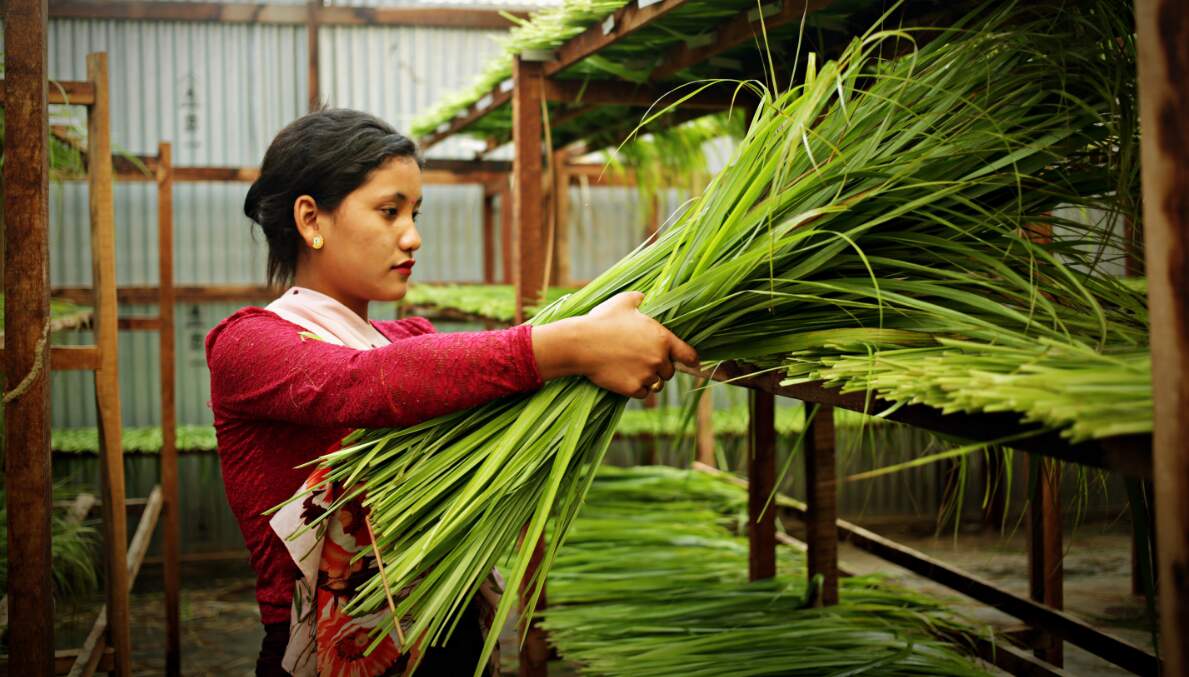
Future Plans
Back in 2017, the company received foreign direct investment amounting to nearly USD 500,000 from Netherlands-based fund manager called Capital 4 Development Partners (C4D Partners). The plan is now to go for another round of funding to open a second factory in Nongpok Sekmai village, which is about 20 km from Imphal. The plan is to not merely expand production but also impart the same sort of economic development to underserved rural communities like they did the last time they opened a factory.
“Real impact investors should look to make a genuine difference in a state like Manipur. But unfortunately, I have seen many investors hesitate at the idea of doing so even though they liked my product. They just don’t like where I do my business from. This has to change, and I want to lead the way. In five years, I want to issue an IPO,” he says.
(Edited by Vinayak Hegde)
Like this story? Or have something to share? Write to us: [email protected], or connect with us on Facebook and Twitter.
If you found our stories insightful, informative, or even just enjoyable, we invite you to consider making a voluntary payment to support the work we do at The Better India. Your contribution helps us continue producing quality content that educates, inspires, and drives positive change.
Choose one of the payment options below for your contribution-
By paying for the stories you value, you directly contribute to sustaining our efforts focused on making a difference in the world. Together, let’s ensure that impactful stories continue to be told and shared, enriching lives and communities alike.
Thank you for your support. Here are some frequently asked questions you might find helpful to know why you are contributing?


This story made me
-
97
-
121
-
89
-
167











